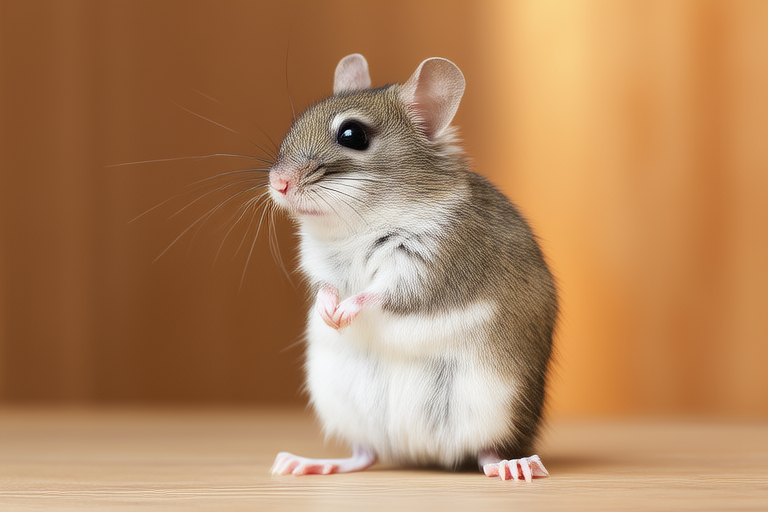Chinchillas: The Ultimate Guide to Fluffy, Dancing Pets
Welcome to the world of chinchillas! These adorable, fluffy creatures have captured the hearts of many pet lovers. Known for their luxurious fur and playful antics, chinchillas are not just any ordinary pets; they are a unique species that requires special care and attention. This comprehensive guide will take you through everything you need to know about these fascinating animals, from their origins to their dietary needs, grooming routines, and much more.
The Origins of Chinchillas
Native to the Andes Mountains in South America, chinchillas are part of the rodent family. They are named after the Chincha people, who once lived in the region where these animals were found. Historically, chinchillas were hunted for their dense, soft fur, which was highly valued for making garments. Today, thanks to conservation efforts, chinchillas can be found in captivity, primarily as pets or in zoos. Their natural habitat is high-altitude regions, where they thrive in cool, dry climates.
Ideal Living Conditions
Creating the perfect environment for your chinchilla is crucial for their well-being. Chinchillas require spacious cages with multiple levels, allowing them to jump and explore freely. A wire cage with solid flooring is ideal to prevent injuries from sharp edges or gaps. Ensure the cage is placed in a quiet area away from direct sunlight and drafts. Maintain a temperature between 64°F and 70°F (18°C and 21°C) to mimic their natural habitat. Humidity should be kept low, around 30-50%, to avoid respiratory issues.
Dietary Needs
A balanced diet is essential for maintaining your chinchilla’s health. Their diet should consist mainly of hay, fresh water, and commercial chinchilla pellets. Timothy hay is preferred as it aids digestion and keeps teeth healthy. Fresh vegetables and fruits can be offered occasionally but should not replace the primary diet. Avoid sugary treats and foods high in fat or protein. Always provide clean, fresh water in a sipper bottle to encourage constant hydration.
Grooming Requirements
Chinchillas have incredibly dense fur, which requires regular dust baths for cleaning. Offer a shallow container filled with chinchilla-specific dust at least three times a week for 10-15 minutes. This helps remove dirt and excess oils from their coat without over-bathing, which could lead to skin problems. Regular nail trims are necessary to prevent overgrowth, which can cause discomfort and difficulty walking. Consult a veterinarian if unsure how to trim nails safely.
Common Behaviors: The Dancing Chinchilla
One of the most endearing traits of chinchillas is their tendency to “dance.” When excited or happy, they may hop around, leap, and spin in circles. This behavior is often referred to as “dancing” and is a sign of good health and contentment. Chinchillas also enjoy gnawing on safe items like wooden toys or chew sticks, which help keep their teeth worn down. Providing mental stimulation through toys and activities can prevent boredom and destructive behaviors.
Interaction with Humans
Chinchillas are social animals but can be shy and cautious around unfamiliar people. Patience and gentle handling are key when bonding with your chinchilla. Start by offering treats and speaking softly to build trust. Once comfortable, they may allow you to hold them gently. Always support their body fully and avoid sudden movements. Regular interaction can strengthen the bond between you and your pet, leading to a rewarding companionship.
Health Issues
Despite their hardy nature, chinchillas are susceptible to certain health issues. Respiratory infections, caused by cold temperatures or poor ventilation, are common. Dental problems can arise from improper diet or genetics. Signs of illness include lethargy, loss of appetite, sneezing, or discharge from the eyes or nose. Regular veterinary check-ups and prompt treatment are vital for maintaining your chinchilla’s health. Early detection and intervention can prevent complications and improve outcomes.
Tips for New Owners
Becoming a responsible chinchilla owner involves preparation and commitment. Research thoroughly before bringing home a chinchilla. Ensure you have all necessary supplies, such as a suitable cage, bedding, food, and toys. Create a routine for feeding, cleaning, and playtime. Educate yourself on common health issues and signs of distress. Join local or online communities for support and advice from experienced chinchilla owners. With proper care and attention, your chinchilla will thrive and bring joy into your life.
Resources for Further Learning
For those eager to learn more about chinchilla care, several resources are available. Books, magazines, and websites dedicated to small animal care offer valuable information. Local pet stores often host workshops or seminars on chinchilla husbandry. Online forums and social media groups provide opportunities to connect with other owners and share experiences. Continuous education ensures you provide the best possible care for your furry friend.
